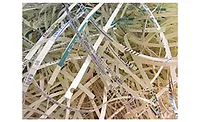FDA Skeptical About Anthrax Kit Access
Plans to make anthrax-antidote kits available to the 114 million households in the U.S. may lead to misuse of medicines and stir up public fears, advisers said in a Bloomburg Businessweek article.
The regulatory advisers say that people might infer that an anthrax attack is imminent, which could lead to an adverse impact on doxycycline, the antibiotic that was hoarded after 9/11. The FDA met with panels of scientists and academics to consider whether kits containing 10-day supplies of doxycycline should be available for Americans to store in their homes in preparation for a bioterrorist attack, the article says.
The panelists compared the idea to "crying wolf" and "the decades old fallout shelter craze." They also voiced concerns that consumers might misuse the medkits by taking the antibiotics for reasons other than anthrax attacks, which could exacerbate antibiotic resistance. A 2007 test run in the St. Louis area (4,200 households) showed some instances of misuse, as one elderly woman took the tablets when an emergency was declared for a snow storm, and two others took the doxycycline for sore throats.
Home kits could relieve some of the burden on community dispensing centers, which are unlikely to be able to meet the two-day deadline to hand out drugs to prevent people from becoming sick from anthrax poisoning. In certain cities, such as Minneapolis and Louisville, Kentucky, the U.S. Postal Service is authorized to deliver medkits for homes. The program being discussed currently would let people obtain the kits from pharmacies whenever they see fit, Businessweek reports.
A branch of the Health and Human Services Department said that it wants to start with 10 million first responders and their families before expanding the option to the rest of the population.
The FDA is also hearing arguments this month for the wider availability for treatments for any terrorist-initiated outbreak of pneumonic plague, according to documents on the FDA website.
Looking for a reprint of this article?
From high-res PDFs to custom plaques, order your copy today!





